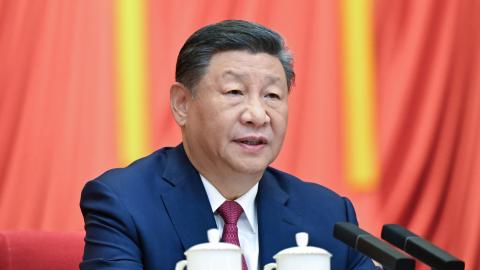Wars in the Middle East and Ukraine dominate the headlines, but the Indo-Pacific remains the fulcrum of world politics and where the 21st century will take shape. While bombs fall and missiles fly elsewhere, the Chinese Communist Party is wrestling with its greatest challenges since Deng Xiaoping’s reforms fueled a generation of blistering growth in the 1980s. Unfortunately, the economic choices China is making look set to promote greater repression at home and increased tension with neighbors and trading partners around the world.
According to recent Wall Street Journal reports, up to 90 million housing units across China stand empty in a country whose population is falling. Real-estate developers cannot service their loans. Local governments, which have long funded their programs by land sales to developers, are drowning in debt. With government encouragement, Chinese households invested nearly 80% of their total savings in real estate. Now that house prices have fallen about 30% since 2021 in some markets, shocked consumers are reining in their spending. Industrial profits are down 17.8% in the past year. Youth unemployment continues to rise. Europe and the U.S. are planning new tariffs against an expected flood of cut-price Chinese exports. Banks don’t want to lend, and foreigners don’t want to invest.
Read the full article in The Wall Street Journal.
Enjoyed this article? Subscribe to Hudson’s newsletters to stay up to date with our latest content.




















